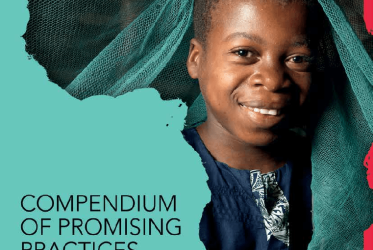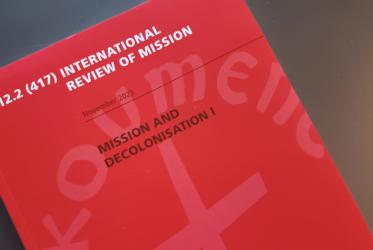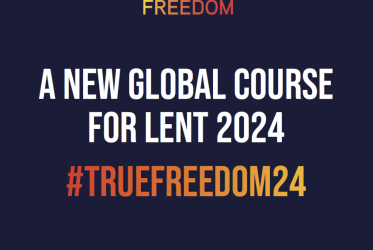Congratulations on the publication of your new book! How was it influenced by the ecumenical movement?
Rev. Fornerod: I wrote this book during my last years serving the Protestant Church in Switzerland as director for ecumenical relations, during the time I was member of the central committee of WCC. Part of the reason for it is that I realized how much my professional life and my personal faith have been closely linked to and influenced by the ecumenical movement and the quest for unity, peace, and justice. My first job in the 1980s was to serve in a Dutch congregation founded by a woman who was among the first Bossey students in 1947. It was dedicated to the reconciliation work undertaken by the WCC in Berlin and in the former German Democratic Republic. Later I worked as an executive officer of our aid agency, Swiss Church Aid all over Europe, taking an active part in the WCC roundtables supporting the work of churches in Spain, Portugal, Slovakia, Hungary, and Armenia and supporting Reformed churches in Central and Eastern Europe after the fall of communism.
After that I was active in the Church and Society Commission of the Conference of European Churches, advertising for and supporting the witness and the voice of the churches towards the European institutions. Finally, I developed at the Protestant Church in Switzerland a strategy and instruments for a stronger participation of our church in the ecumenical movement and for opening our Swiss churches to stronger relations with the reality of the churches around the globe, taking seriously their concerns but also their strengths. The conviction that here is only one worldwide church grew in me over the years, though the churches took very different forms and traditions due to history and local contexts. But there is only one Jesus Christ, the same for all. I think the people who read my book acknowledge this conviction and special experience.
How has your personal story framed your life?
Rev. Fornerod: The other reason why I decided to write this book is that, during all these years, I came by coincidence across the fact that peoples with my family name worked in the same places and for the same issues as me in the last centuries, beginning immediately after the Reformation. I had absolutely no idea before about these kind of “ancestors” in Berlin, Moscow, Milan, or Lausanne. It was very intriguing and I started to make some historical research about them and my family, and mirrored their story with mine in the book.
Have you always had a passion for ecumenism?
Rev. Fornerod: For me, biographically, Christian faith, travels, and ecumenism are intrinsically connected and interwoven. The pastor of my congregation organized every year for the youth a cultural trip to a region in France. We always overnighted in Cistercian monasteries and took part in the spiritual life of the monastery, had long talks with monks, and so on. My understanding of the church was international and ecumenical from the beginning.
What do you see as the role of ecumenical organizations such as the WCC in advancing peace and justice?
Rev. Fornerod: The WCC’s work is essential for our churches in the global North, because it shows us that the reality of the large majority of the Christians in the world is very different from ours, especially here in western and northern Europe. It’s not only about the way and conditions of life, but very much also about the way of believing and the role of faith in the daily life. Most of the western churches have still a way to go to realize that Christian faith has become an alternative, even a counterculture to the mainstream thinking and acting of our societies. As Christians, we have to challenge the mainstream ideologies of “freedom above all” that only strengthen the position of the already powerful. We also have to reject all forms of over consumerism, xenophobia and racism, the destruction of the earth, militarism, speculative economy, and so on. There is no more possible compromise about this. We have to be much more vocal on this and to develop alternative ways of living. Also, we need to show by example that another way of life is possible.
Would you like to share some of your visions in your new role as president of the Foundation for Reformed Churches?
Rev. Fornerod: The FAP Foundation for Reformed Churches is a small foundation with limited means, aiming at supporting projects of member churches of the World Communion of Reformed Churches. We are active in the small and medium size grant segments. The foundation is located within the Ecumenical Centre in Geneva, which allows us to benefit from the worldwide connections and networks related to the WCC. The foundation shares the vision that “Christ’s love moves the world to justice, reconciliation, and unity” and screens the submissions received through this vision. We like to support visions of the future of Christianity that are open to the social and ecumenical witness of the church and are not focused on keeping the status quo or traditional church life.






